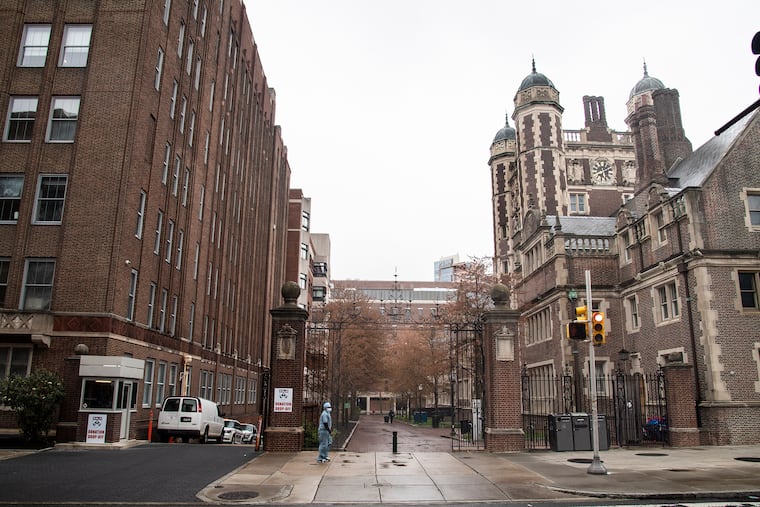Penn to remove statue of slavery supporter, forms group to look at campus iconography
The move comes as colleges across the country review campus symbolism in the wake of George Floyd’s killing at the hands of Minneapolis police officers. Penn, like other colleges, has been examining its ties to slavery for several years.

The University of Pennsylvania on Thursday announced that it would remove the statue of a supporter of slavery from its quad and form a group to review all campus iconography.
“This group will engage in broad outreach across our community and advise us on further steps to ensure that the placement and presence of statues and other prominent iconography better reflects our achievements and aspirations to increase the diversity of the Penn community,” Penn president Amy Gutmann, provost Wendell Pritchett, and executive vice president Craig Carnaroli said in a campus message.
» READ MORE: Princeton strips Woodrow Wilson’s name from school, citing his racist past
Colleges across the country are reviewing campus symbolism in the wake of George Floyd’s killing at the hands of Minneapolis police.
Princeton University on Saturday announced that it would remove President Woodrow Wilson’s name from its public policy school and one of its residential colleges. Monmouth University, also in New Jersey, last month announced that it would take Wilson’s name off a prominent building. Hofstra University on Long Island last month moved a statue of President Thomas Jefferson to a less prominent place. And some Southern colleges are relocating or removing statues of Confederates.
At Penn, the statue of George Whitefield, a mid-18th century preacher who led the campaign to allow slavery in Georgia, will be removed. It was erected in the early 20th-century, Penn said. Whitefield’s connection to Penn stems from the university’s earliest days. He owned a meetinghouse at Fourth and Arch Streets that was purchased by Benjamin Franklin, Penn’s founder, to house the Academy of Philadelphia, a predecessor of Penn.
» READ MORE: Penn’s ‘profoundly painful’ past: At least 75 of the school’s earliest trustees owned slaves
Like other universities around the country dating from the colonial era, Penn has been examining its ties to slavery for several years. In 2018, a committee found that at least 75 of Penn’s earliest trustees had owned enslaved people. The work of the enslaved was used to support Penn faculty and students, and some of its faculty and alumni advocated for slavery and supported the Confederacy, the committee found. The work was rooted in research by a Penn professor and undergraduate students.
Franklin also owned enslaved people. A statue of Franklin stands outside College Hall, Penn’s main administration building. Penn’s leaders noted Franklin’s slavery tie in their message but said, “Importantly, Franklin changed course in his life and went on to become a leading abolitionist.”
The university said it plans to enact recommendations from the committee later this year.